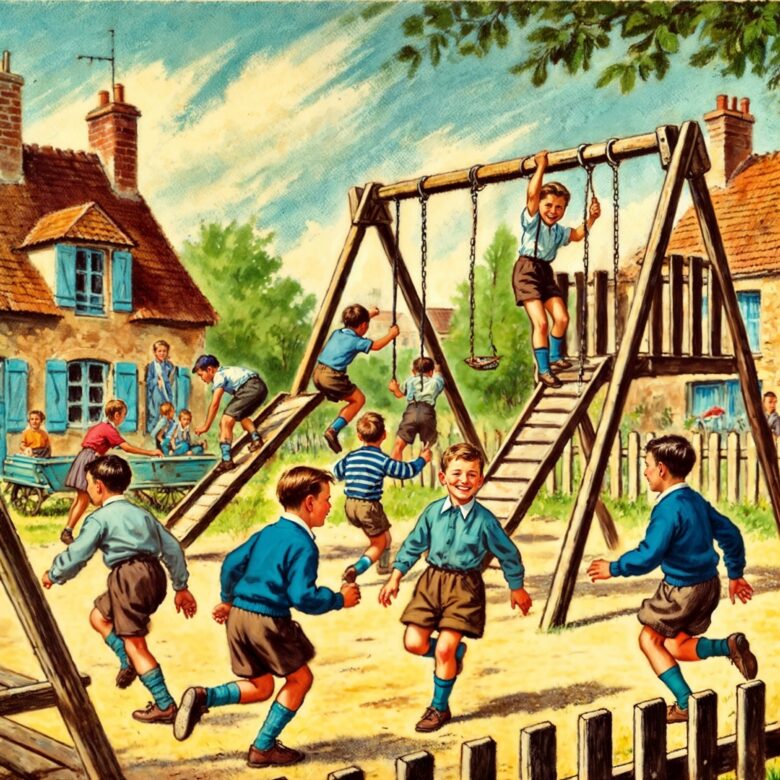In a small part of rural France, there are two villages. These villages, Longeverne and Velrans, do not get along. The children from these villages are always fighting.

The children have a leader named Lebrac, he is the leader of the Longeverne children. Lebrac is smart and brave. He leads his friends with good plans.
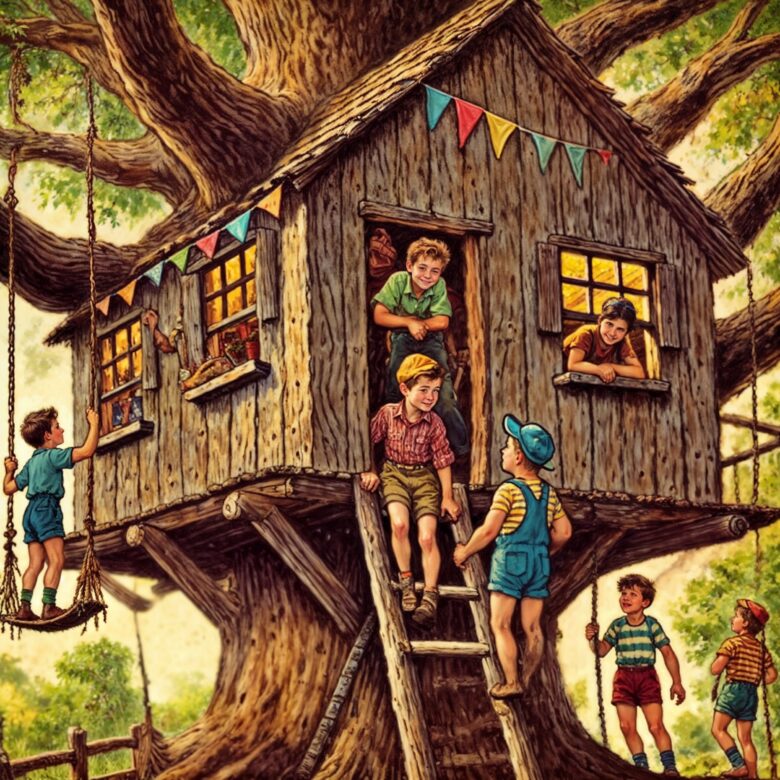
The children try to take buttons, shoelaces, and belts from each other. They think it is funny to make their rivals go home without buttons.
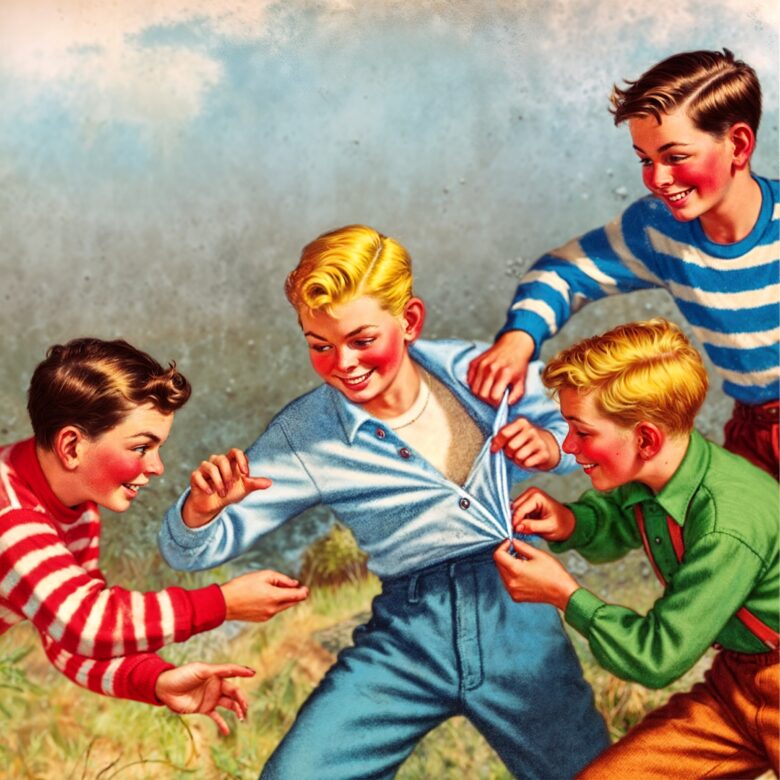
Losing buttons is a big problem. Their parents get very angry when they see their clothes damaged.
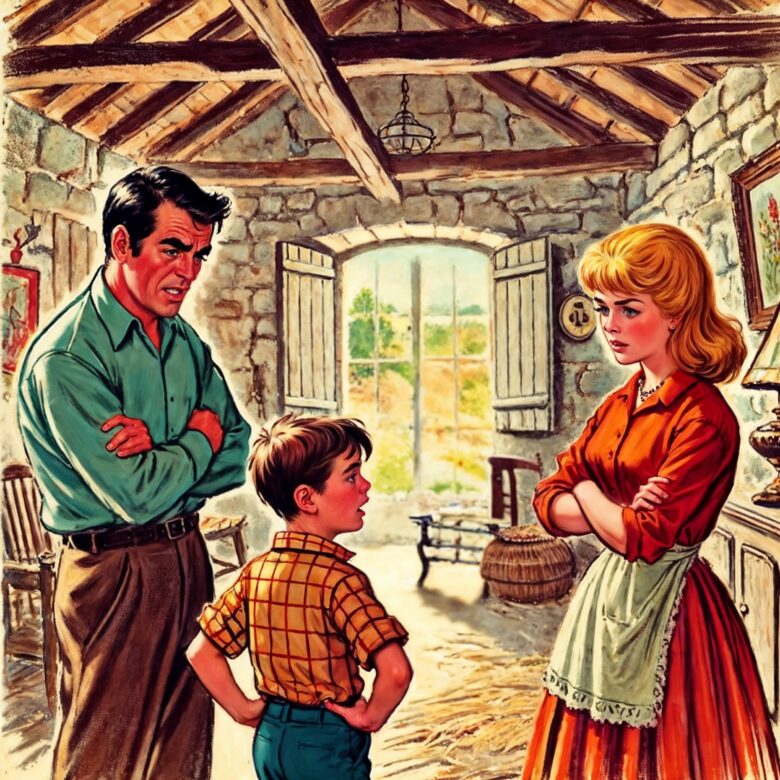
Lebrac is very good at making plans: he tells his friends how to set traps and catch the children from Velrans. The boys from Longeverne like to follow Lebrac because he is a good leader. Camus and Gibus are two other boys from Longeverne who always help Lebrac. They trust him to lead them to victory.
Every day after school, the children meet and plan their next move. They talk about how to catch the boys from Velrans and take their buttons.
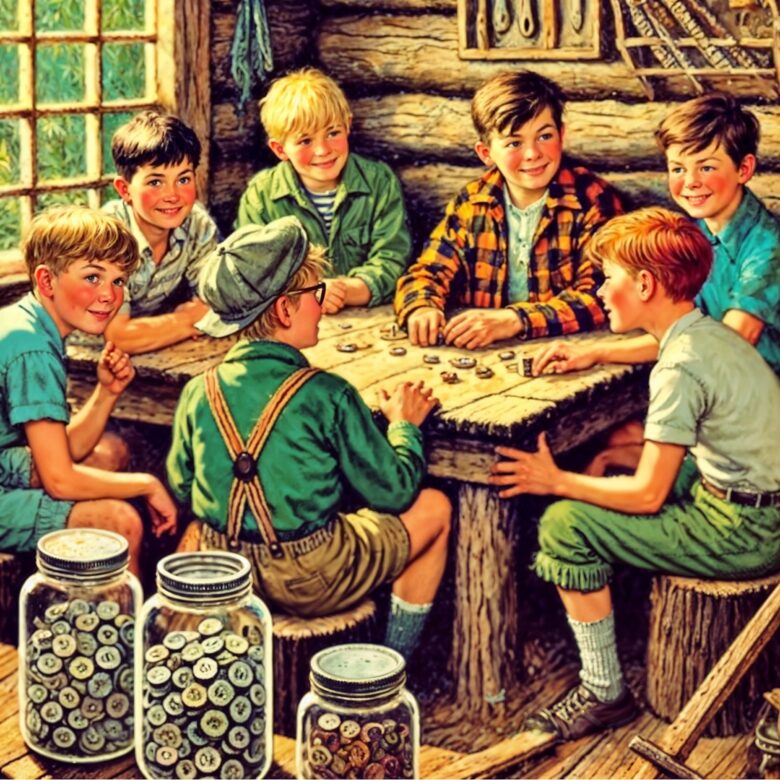
The battles are exciting, and the boys feel like they are in a real war. They also get in trouble a lot. When they come home with missing buttons and torn clothes, their parents get very angry, and the boys get punished.
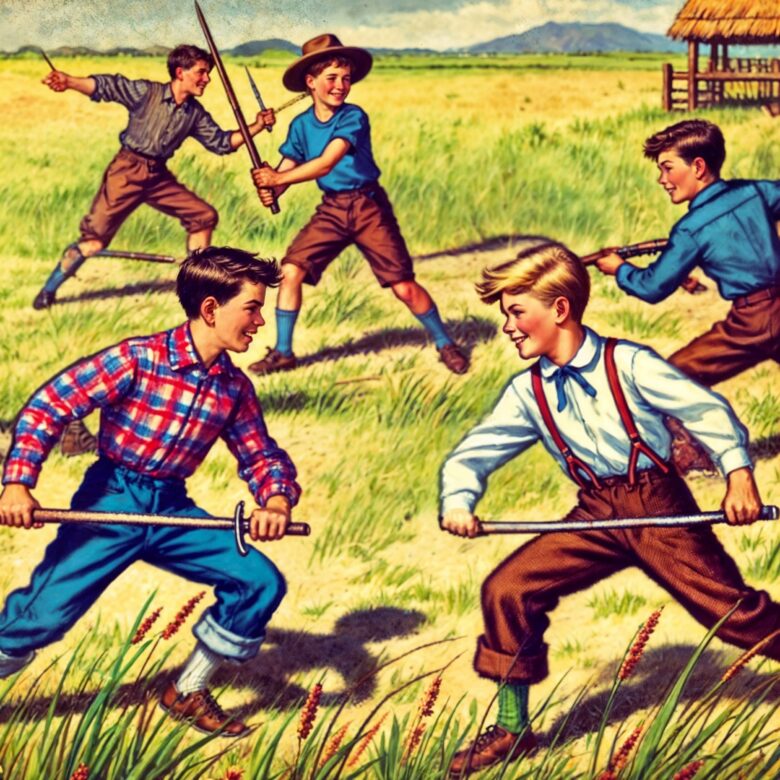
At school, the teachers are also upset with the boys. The teachers do not like the boys fighting all the time. They want the boys to study and behave. But the boys cannot stop thinking about their battles. They always look for new ways to surprise the Velrans gang, with Aztec des Gués as their leader.
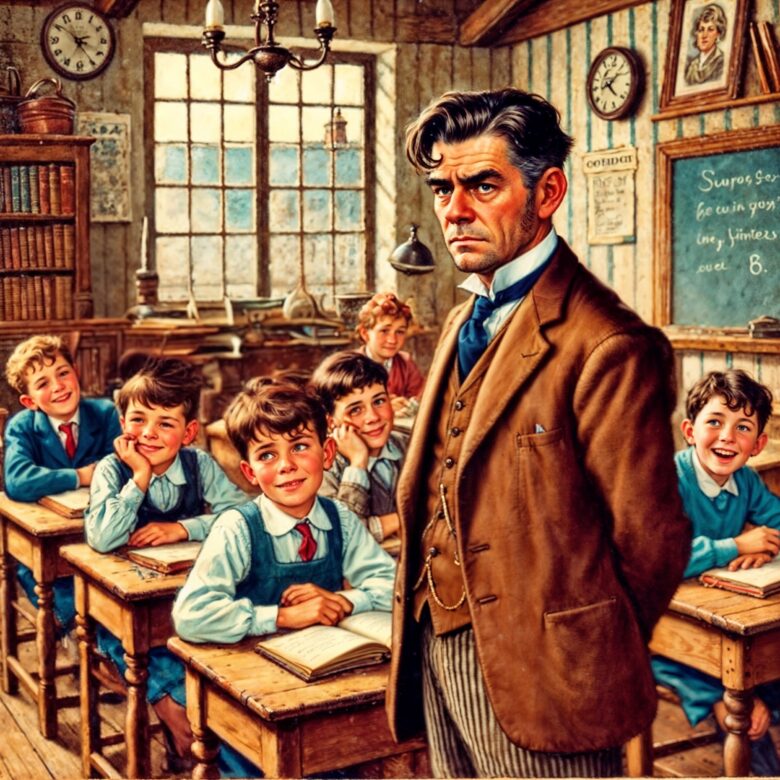
One day, the boys decide to have a big final battle. This battle will decide who is the best. Both sides prepare carefully. They gather supplies and plan their strategies. The boys from Longeverne are sure they will win because they have Lebrac as their leader.
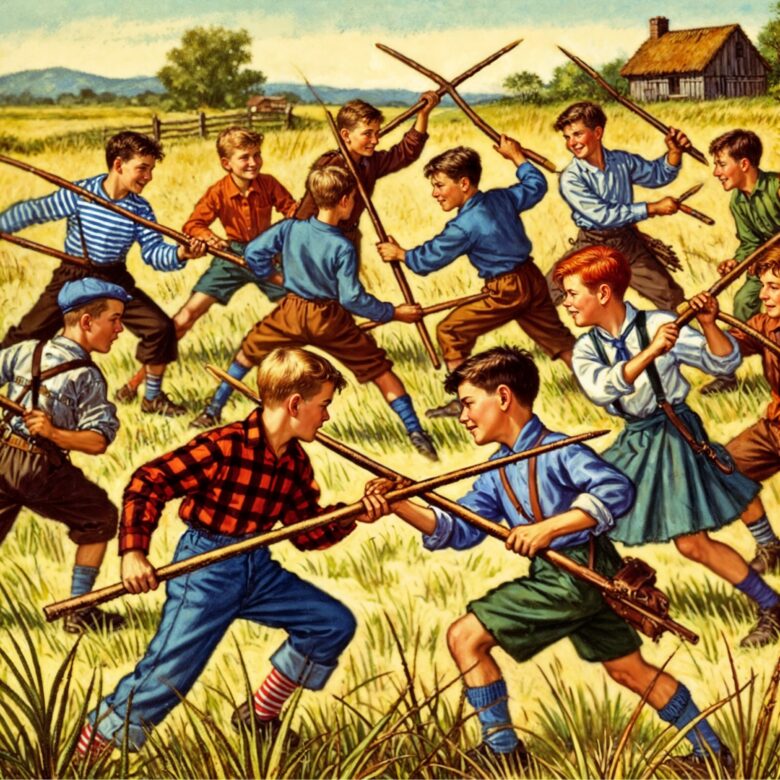
The final battle is very exciting. Both gangs fight hard. But just when the battle is at its peak, the parents and teachers come. They stop the battle and punish the boys. The adults are tired of the constant fighting and the damaged clothes. They make sure the boys know they cannot continue this war.
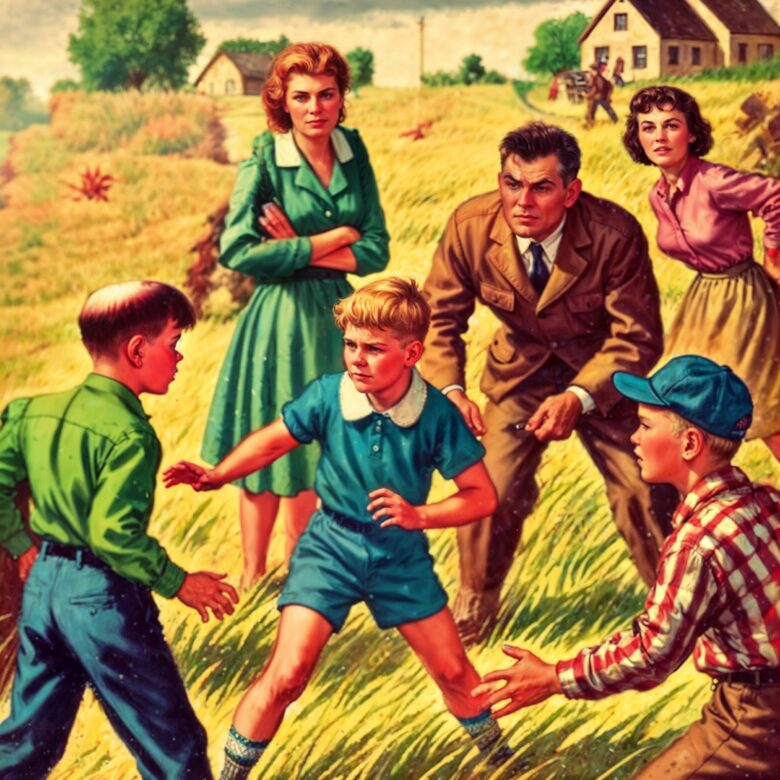
After the adults intervene, the boys stop fighting. They go back to their normal lives. The boys understand that their battles are silly and realise that their rivalry is not important.
